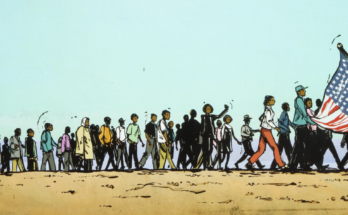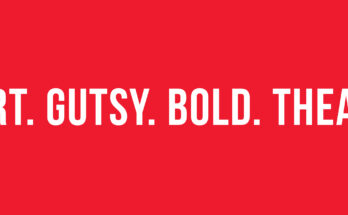“The Thrush & the Woodpecker” runs Oct. 31-Nov. 15 at Actor’s Express. “Blackberry Winter” runs Nov. 6-22.
::
STEVE YOCKEY. Remember the name. The Atlanta native has swiftly become one of the hottest playwrights working in America today.
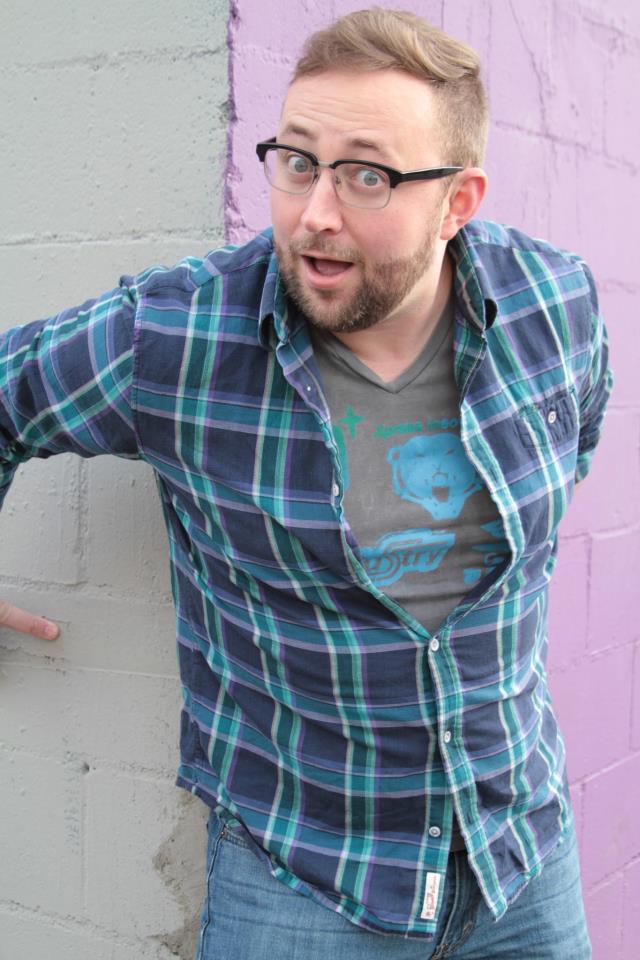
The Los Angeles-based Yockey estimates that he’s written 22 full-length plays in the past decade, along with “dozens and dozens” of short plays.
Two of them — The Thrush & the Woodpecker and Blackberry Winter — begin a repertory run this week at Actor’s Express. Both are full-length and part of a National New Play Network rolling world premiere that will also see them staged at Kitchen Dog Theater in Dallas in May and June.
The 38-year-old playwright has become so popular that the trade magazine American Theatre recently dubbed this the “Year of Yockey” and identified him as one of the 20 most-produced playwrights in the 2015-16 season. Also making the list: Decatur-bred, San Francisco-based Lauren Gunderson, who will be back in Atlanta in 2016. (Shakespeare isn’t allowed.)
Over time, that Top 20 list has included such luminaries as Tennessee Williams, Eugene O’Neill, August Wilson, Sarah Ruhl, Tom Stoppard and Christopher Durang. By his own count, a dozen companies will do a Yockey play this season.
In the beginning
-
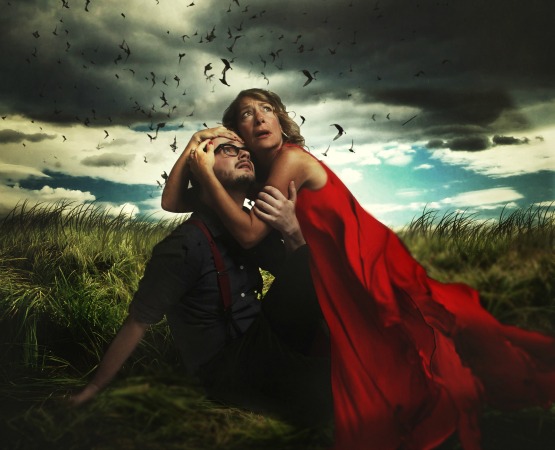
Matthew Busch and Stacy Melich in “The Thrush & the Woodpecker.” (Castmate Kathleen Wattis is pictured in the homepage slide show). Photos: BreeAnne Clowdus
The playwright’s earliest work was commissioned by Dad’s Garage Theatre Company, where he once worked as marketing director. He has also been produced at 7 Stages, but he has bonded most with the Express, which has a similar appetite for dangerous material. Yockey was part of its 2001-02 intern company, and his Octopus was staged there in 2008, as well as the world premieres of Wolves (2012) and Pluto (2013).
Now comes this doubleheader. The Thrush & the Woodpecker is a revenge thriller (not unlike Pluto); Blackberry Winter, a co-production with Out of Hand Theater, illuminates a woman’s struggle to care for her mother, who has Alzheimer’s disease. Atlanta actor Carolyn Cook, whose own mother has dementia, has the key role. Out of Hand’s Ariel Fristoe directs.
The birds, again
As a “total lark,” Yockey says he broached the idea of a world premiere double bill to Actor’s Express Artistic Director Freddie Ashley.
Ashley’s reply: “I’m already seriously considering it!”
Both plays have three-person casts, similar production requirements (shadow puppetry) and themes that include loss and caretaking. The same production teams are designing both.
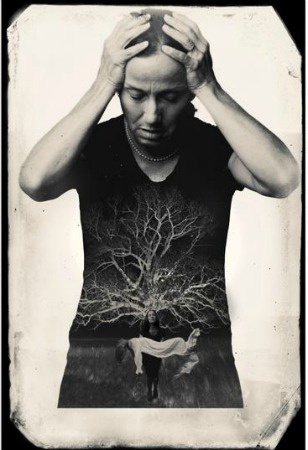
An Atlanta Journal-Constitution critic once wrote that you “should experience at least one Yockey show in your lifetime.” For once, we agree. But what is a Yockey play?
“Heightened modern American realism with a theatrical twist” is the way he describes it.
He plucks ideas from the news and pop culture. Bellwether, for example, involves a child being snatched — and her community becoming unhinged. In Pluto, an estranged mother and son try to jump-start their relationship in the wake of a local tragedy. It slyly becomes a a piece about mass shootings.
Yockey often employs magical realism, allegory or mythology. In Wolves he deconstructed the “Little Red Riding Hood” tale.
He also leans toward dark comedy, so expect sharp dialogue and structural creativity. The guy takes risks.
Yockey, who has an M.F.A. in dramatic writing from the NYU Tisch School of the Arts, contributes to the Zenescope comic-book series “Grimm Tales of Terror” and writes for HBO’s dark geopolitical comedy “The Brink.”
Here are excerpts from our conversation with him:
Q: So many plays already, so many ideas explored within those plays. Is this what you do for “fun?”
A: Writing is a full-tilt compulsion for me. I need to do it. I’m not at all disciplined about it, so deadlines help. But I do write all of the time. Then it becomes about weeding through things to find the ideas that can actually become something. Something more than just “visceral.”
Q: Actor’s Express has championed your work. What has that meant to you?
A: Actor’s Express during Freddie Ashley’s tenure has been an amazing artistic home. They take chances. And they never say, “We can’t do this.” It’s always, “How can we make this happen?” When you write plays with, frankly, bizarre requirements, like Wolves or Pluto, that positive attitude is invaluable in developing the work. Melissa Foulger, who directs most of my work here in town, is also an artistic associate at AE. And the audience they’ve cultivated always comes in ready to go on the ride.
Q: Octopus, wolves, woodpeckers and now puppets. Animal imagery and mythology are prevalent in your plays. How do these elements assist or inspire your work?
A: I’m a huge fan of theater being “theatrical,” which sounds obvious, I know. But there’s a lot of very naturalistic theater on stages right now. My work is not that. It tends to unfold at the intersection of really intimate personal stories and some hidden, much larger reality, usually mythic in some way.
Really, myths are just stories we tell ourselves to help explain how the world works, or why it works, why things happen. So blending that scale of myth with modern angst allows me to dig into human stories and still have these unexpected, fantastical elements. These elements create delight, shock or awe, things from outside your everyday experience. Plus, everyone loves puppets.
Q: You write women well. Why do you think that’s so?
A: I love writing women. Most of my plays feature female leads. I’m not sure I have a theory as to why that is or how exactly that happens. I just try to write fully fleshed-out people and worry about their wants, desires and disappointments. As long as you’re specific, it usually lands regardless of gender.
Q: What are your thoughts on the Atlanta theater scene?
A: No matter where I work, Atlanta will always be home. It’s this fantastic churn of old and new, of traditional and what’s next. And from my vantage point, the Atlanta theater community seems to be alive with this palpable energy right now, these new ideas.
There are a lot of original voices in playwriting emerging as well, diverse both culturally and stylistically. And rather than be hobbled by the loss of seminal institutions like Georgia Shakespeare, the community is pushing ahead. Most importantly, everyone from the Alliance on down seems to be taking bolder chances, taking risks. That’s what theaters everywhere have to do to keep audiences coming back.
Q: What’s the chief difference between writing for the stage and writing for an HBO show?
A: Both are fun. The biggest immediate difference is that writing on “The Brink,” on any television show really, is about being faithful to those existing characters and making sure, through healthy debate and a lot of working lunches, you’re all delivering the showrunner’s vision. With plays, you can do whatever crazy thing you want.
Q: What’s next?
A: I’m working now on a breakneck absurdist farce about income inequality and the “disappearing middle class” called Bleeding Hearts. And I’m also drafting a play exploring the phenomenon of everyday rage called Mercury. It’s a real zoo of a play. It’s not nice.
Q: If you had to give a name to the Yockey double bill at the Express, what might that be?
A: Freddie asked me this. I honestly have no idea. Maybe “Bird Trouble.” No, that’s ridiculous; don’t print that. [He acquiesced, so we did.]

